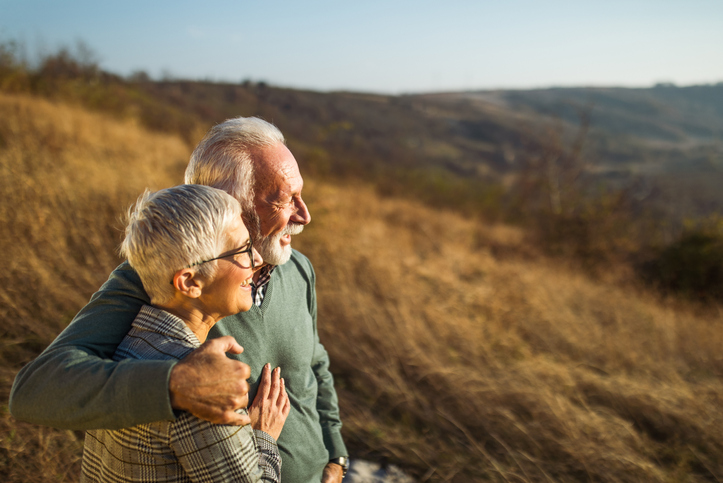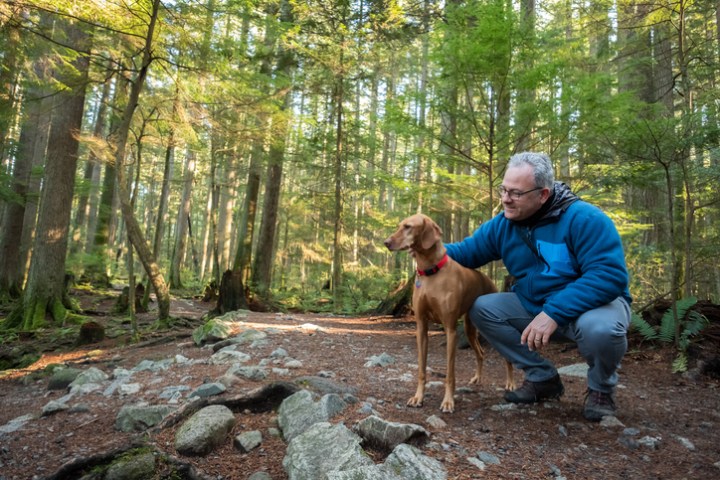How to live to 100? Get moving, says Ariane Sherine

When newspapers give daily contradictory advice on how to live longer, and on what foods will either help you or kill you, how do we know who to trust and what to do to genuinely reach a ripe old age? In this article Ariane Sherine explains how you can get started on your journey to being a centenarian.
How can you become a centenarian? As the wit reading this article might quip: avoid dying before your 100th birthday. Most people don’t manage to though; the average UK woman only lives to 82.9, and the average UK man lives to 79.2. Worse still, when you look at healthy life expectancy – that is, how long people remain in good health for – the UK figures drop to an abysmal 63.6 years for women and 63.1 years for men. This means the average British woman will live the last 19.3 years of her life in ill health, while the average British man will suffer for 16.1 years.
However, this fate isn’t inevitable. For example, last year, the average life expectancy in Japan was an impressive 87.5 years for women and 81.4 years for men – and when it comes to healthy life expectancy, Japanese women live 74.8 years in good health (11.2 years longer than British women) and Japanese men live 72.1 years (9 years longer than their British male counterparts).
So how, realistically, can we Brits avoid the fate of an early death and up to two decades of suffering ill health before we kick the bucket? There are many factors which contribute either positively or negatively to life expectancy, not all of them within our control, but the number one factor we can influence is probably exercise. It improves pretty much every health metric and, if taken to extremes, can extend your life by over a decade.
I can almost hear you groan as you read that sentence. Believe me, I don’t love exercise either. It can be painful and boring, but put it into perspective: it’s definitely not as painful and boring as being confined to a hospital bed for 19 years at the end of your life, because you’ve failed to exercise your muscles and now they’ve given up on you. You only get one body – sadly for everyone reading this, we’re not at the cyborg stage of science and technology yet – and as the truism goes, if you don’t use it, you lose it.
The good news is that there are a multitude of new ways to make exercise easier and more fun. If you have an iPhone – and around half of UK smartphone users do – you can get an Apple Watch to pair with it. The revolutionary device urges you to improve your health in many ways, from encouraging you to stand for a minute each hour (crucial for health, as the ‘Standing’ chapter of How to Live to 100 explains) to exhorting you to raise your heart rate for half an hour a day, burn 360 ‘active calories’ (calories over and above those you’d ordinarily burn just by being awake) and even meditate.
This isn’t an ad for Apple, so other fitness trackers are available, but having owned a FitBit too, its efficacy pales in comparison to the swish style, smart tech and general well-thought-outness of the Apple Watch. If you’re Apple-averse, or don’t fancy an annoying tracker buzzing on your wrist, why not get a Nintendo Switch and buy the Ring Fit Adventure, a compelling fitness game? Or if you’re skint, there are endless free fitness classes available on YouTube, from dance routines to aerobics to yoga.
Of course, exercise isn’t going to get you to 100 by itself if you spend your days alone chain-smoking, drinking ten pints of beer a day and stuffing your face with turkey twizzlers. That’s where the rest of our new book How to Live to 100 comes in. Public health consultant David Conrad has studied all the scientific evidence behind 100 factors that affect life expectancy, and provided lifestyle advice to help you maximise your chances of reaching 100. There are some truly fascinating findings – for example, did you know that having sex twice a week is the optimum frequency for longevity? (No, we don’t know why. I’d happily have sex twice an hour if I got the chance, but that’s TMI!)
There’s also a quiz I’ve compiled at the end of the book which allows you to work out how well you’re doing in terms of your quest for a long and healthy life, and lets you identify which areas need work. I’ve upped my ‘five-a-day‘ to a ‘ten-a-day’ (six veggies, four fruit) and have turned pescatarian as a result of David’s research (red and cured meat is linked to bowel cancer). I also need to move around more, so I’ll leave you to go and buy the book while I go and do some star jumps. Happy reading, and I look forward to an invitation to your 100th birthday party.
If you're reading this, you probably want to live to a hundred.
And why wouldn't you want to live a super-long life, if you could remain in good health? You'd get to meet your great-grandkids, try out space travel and the teleporter, and gross out all your descendants by having noisy old-person sex.
Comedian Ariane Sherine has always been determined to live into her hundreds, but never knew how. With so much conflicting and confusing health information out there, she didn't have a clue where to start until she met David Conrad, a public health expert, who helped her to weigh up all the research and evidence and explained exactly what to do to live a long and healthy life.
And together, they've decided to tell you how to live to a hundred too.
This book has all the facts, stats, inappropriate jokes and shameless puns you could ever need to make it to your eleventh decade. The evidence is given for a hundred factors that affect life expectancy - everything from green tea to gardening, sex to sweeteners. And celebrities weigh in with their own thoughts too, so you'll find contributions from Derren Brown, Richard Osman, Lou Sanders, Charlie Brooker, Konnie Huq, Robin Ince, Jeremy Vine, Clive Anderson and many more.








